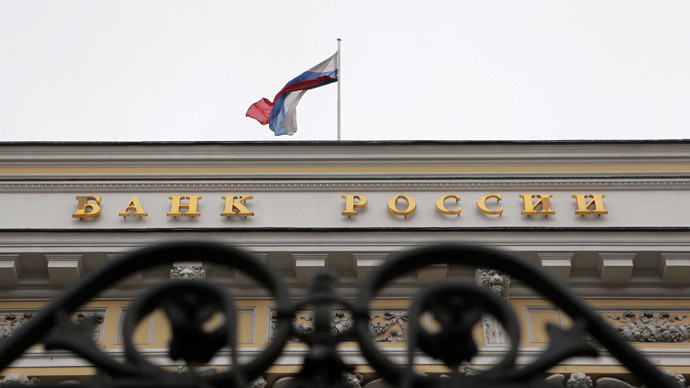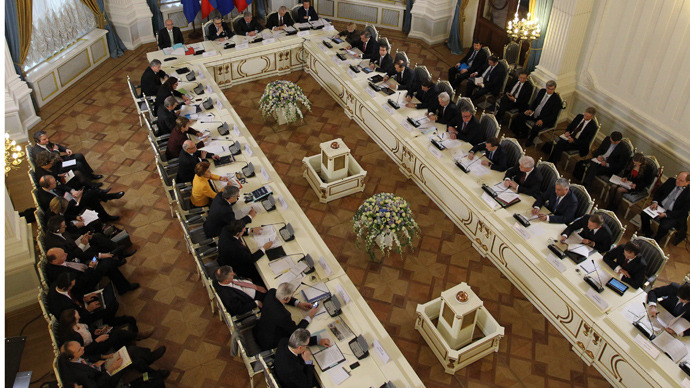The Russian president has charged the Central Bank and the government with the task of developing a working scheme allowing enforcement of the ban on civil servants’ and officials’ foreign assets through cooperation with foreign banks.
The presidential order was prepared after the United States, the EU and several other nations imposed sanctions on a group of Russian officials and top executives in state owned companies. According to the decree, the government and the Central Bank must find a way to receive information from foreign financial institutions or government instances, the Izvestia daily reported.
The newspaper’s unnamed source in the government has stressed that the main objective of the move was to uncover the civil servants who were dodging the ban on foreign assets as the sanctions make such people vulnerable to court action in in foreign jurisdictions, which is against the government’s desires.
According to the paper, the fresh order was the Kremlin’s acknowledgement of the difficulties in the implementation of the ban on foreign assets for senior officials and senior executives in state companies, introduced in August last year.
The Central Bank was made the principal body in charge of the new scheme. However, Izvestia quoted an unnamed source in the Central Bank as saying that it was too early to discuss the possible methods through which the objective can be achieved. The source added that so far they were only suggesting the signing of information disclosure agreements with foreign financial authorities.
Russia’s Financial Ombudsman Pavel Medvedev has assessed the chances of ensuring international cooperation in enforcing the foreign asset ban as extremely low. Medvedev said the program could be feasible if it had been initiated four years ago. This was when the United States was building the network around its Foreign Account Tax Compliance Act, obliging foreign banks to inform US authorities about accounts of US citizens, or even whom they suspect are US citizens or people with ties to the country.
As Russian banks refused to participate in the US project, the Russian authorities should not now count on cooperation from the West, Medvedev noted.
Apart from attempts to enforce the foreign asset ban, Russian authorities have recently moved to impose new rules in order to ensure the course of ‘nationalization of the elites’. In late April this year, parliamentary majority party United Russia suggested fast-tracking a bill banning leading Russian politicians owning foreign real estate, claiming such a move would make the country less vulnerable to outside pressure and threats of sanctions.


